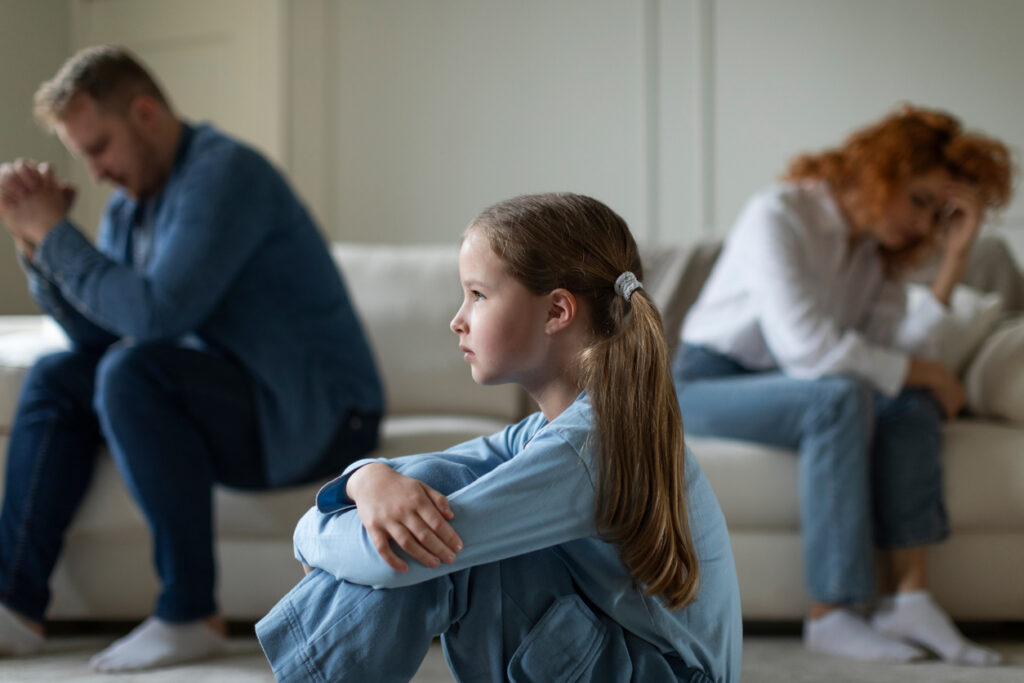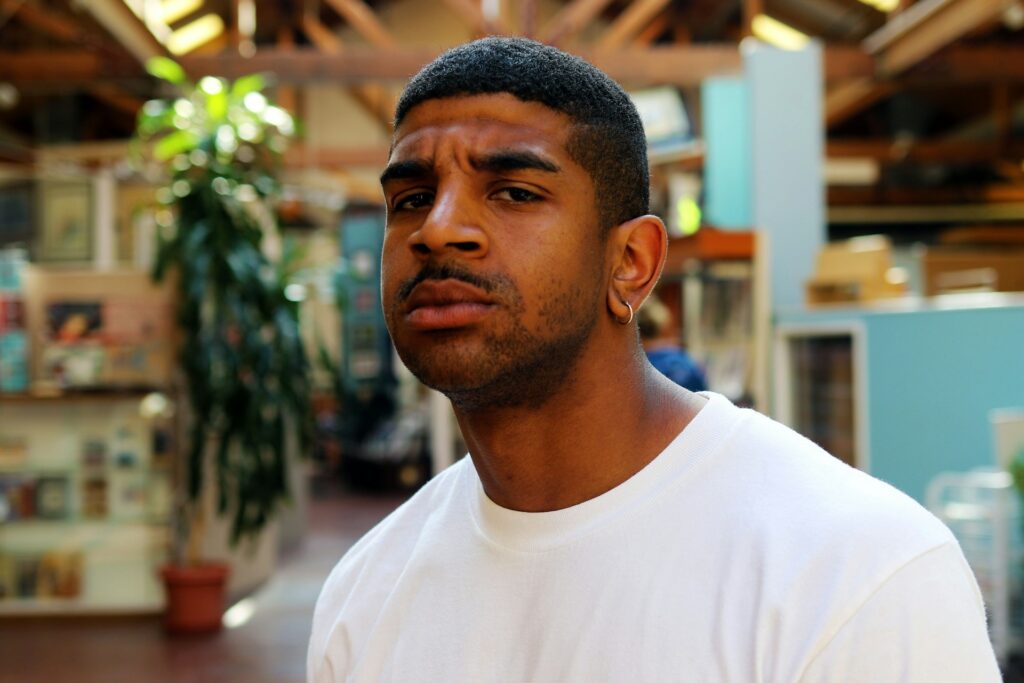Emotional maturity is evident not only in how people act (and react) during big moments—it’s there in how they handle daily life, communication, and relationships.

When you’re raised by emotionally immature parents, you grow up learning survival strategies instead of healthy emotional habits. It can leave deep, lasting marks that follow you into adulthood, often without you even realising why certain things feel harder than they should. If any of these points feel familiar, it’s not your fault. The purpose here isn’t to blame the people who raised you—it’s to help you understand yourself more clearly, and potentially process your experiences in a healthier way so you can grow beyond them.
1. Trusting your own feelings is nearly impossible.

If your parents dismissed, mocked, or ignored your emotions growing up, you probably learned early on that your internal world wasn’t trustworthy. You might second-guess yourself constantly, unsure if your feelings are “valid” or if you’re just being “too sensitive.” After a while, that self-doubt can morph into chronic anxiety or people-pleasing because you’re always looking for outside approval to confirm what you should be able to feel confident about on your own.
2. You’re overly responsible for other people’s emotions.

Emotionally immature parents often lean on their kids for emotional support instead of the other way around. If you were expected to “keep the peace” or cheer them up, you may have internalised a belief that managing other people’s feelings is your job. That pattern doesn’t just disappear when you grow up. It can quietly sabotage your mental health by making you feel like you’re failing whenever someone around you isn’t perfectly happy.
3. You struggle with emotional regulation.

If no one modelled how to manage emotions—naming them, processing them, calming down—you probably had to figure it out alone. And that’s a tough thing to learn without guidance. As an adult, this can look like overreacting to small stresses, shutting down completely, or bouncing between numbness and overwhelm without knowing how to get back to centre.
4. You feel guilty setting even basic boundaries.

Parents who couldn’t handle your independence likely taught you that asserting your needs was selfish, mean, or disloyal. Saying no, or even asking for space, may trigger intense guilt that feels completely disproportionate to the situation. That guilt isn’t proof you’re wrong for protecting yourself. It’s leftover conditioning from a time when your survival depended on keeping fragile people happy.
5. You often don’t even know what your needs are.

When your role in the family was centred around other people’s needs, you might have never had the space to figure out your own. Your instincts to suppress, ignore, or minimise your feelings became automatic. As an adult, this shows up as chronic indecision, feeling disconnected from your body, or sensing that something’s “off” but having no idea what it is or how to fix it.
6. You expect abandonment when you’re vulnerable.

Opening up might feel dangerous because deep down, you’re waiting for someone to mock, dismiss, or disappear on you the second you show real emotion. Vulnerability wasn’t safe growing up, so it still feels risky now. That makes it hard to build deep, trusting relationships, even when part of you desperately craves that kind of connection. The fear of getting hurt again keeps you at arm’s length, even from people who mean well.
7. You feel like your emotions are “too much.”

Parents who couldn’t handle their own feelings usually can’t handle yours either. If you were shamed for crying, anger, excitement—anything big—you probably learned to shrink yourself emotionally to avoid upsetting anyone. Today, you might still apologise for crying, downplay your happiness, or bottle up anger until it leaks out sideways. It’s not that you’re too much. It’s that you were taught emotions were dangerous, when they’re actually just human.
8. You overthink simple conversations and interactions.

Growing up in unpredictable emotional environments trains you to scan constantly for danger. Was that comment passive-aggressive? Is that silence bad news? Did you upset someone without realising it? That hypervigilance doesn’t just shut off because you grew up. It sticks around, draining your energy and filling your mind with self-doubt even in safe situations where you don’t actually need to be on high alert.
9. You have a deep fear of disappointing people.

In households ruled by emotional immaturity, love often felt conditional. You might have learned that approval was something you earned by being easy, good, and undemanding—not something you were automatically worthy of. As an adult, this fear can leave you exhausted, always chasing validation, terrified that one wrong move will cost you your relationships, or even your sense of belonging entirely.
10. You find it hard to trust when good things happen.

When good things did happen growing up, they may have been followed by chaos, withdrawal, or punishment. So now, even when life goes well, you’re waiting for the other shoe to drop. It’s hard to fully enjoy peace, success, or love when your nervous system has been trained to brace for impact. It’s not negativity; it’s survival mode that never learned how to stand down.
11. You internalise other people’s moods as your fault.

When parents were unpredictable, you may have learned to blame yourself for their bad moods as a way to make chaos feel more controllable. “If I caused it, maybe I can fix it.” That survival habit often sticks, leaving you feeling weirdly responsible for everyone’s happiness. Every sigh, every frown, every off tone becomes a personal indictment, even when it has nothing to do with you.
12. You struggle to feel safe even when nothing is wrong.

Safety wasn’t a consistent experience in childhood—it was conditional, unpredictable, or performative. So as an adult, peace feels foreign, suspicious, or temporary. Instead of relaxing when things are good, you might find yourself restless, irritable, or anxious. It’s not because you’re broken; it’s because your brain is still wired to expect the emotional ground to shift at any moment.
13. You either avoid conflict, or explode from bottled-up resentment.

If you learned early on that conflict was dangerous or never actually resolved anything, you might have defaulted to stuffing your feelings down for survival’s sake. However, repression doesn’t make anger disappear—it just hides it until it bursts. That can make healthy disagreement feel terrifying or impossible, even with people who love you. Real intimacy requires navigating conflict, and healing means learning it can be safe to disagree without losing everything.
14. You feel like you’re “too sensitive” for the world.

Emotionally immature households often punish sensitivity instead of honouring it. If you felt things deeply, you might’ve been told you were weak, dramatic, or “asking for trouble.” However, sensitivity isn’t a flaw. It’s awareness. It’s empathy. The problem isn’t that you feel too much—it’s that you were raised in an environment that didn’t know how to meet you there.
15. You’re still learning that needing help doesn’t make you weak.

If your parents couldn’t handle their own emotions, they definitely couldn’t handle yours. So you learned early to cope alone, hide your struggles, and muscle through without asking for support. However, real strength isn’t never needing anyone. It’s knowing when to reach out. Healing means realising that you’re not a burden—you’re a human being—and your needs were never too much to begin with.


